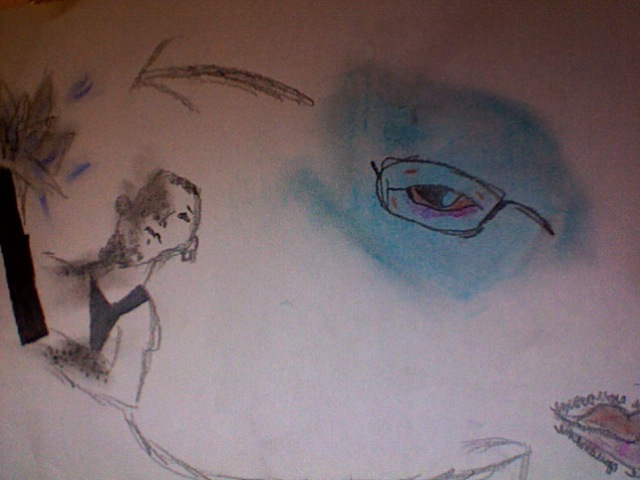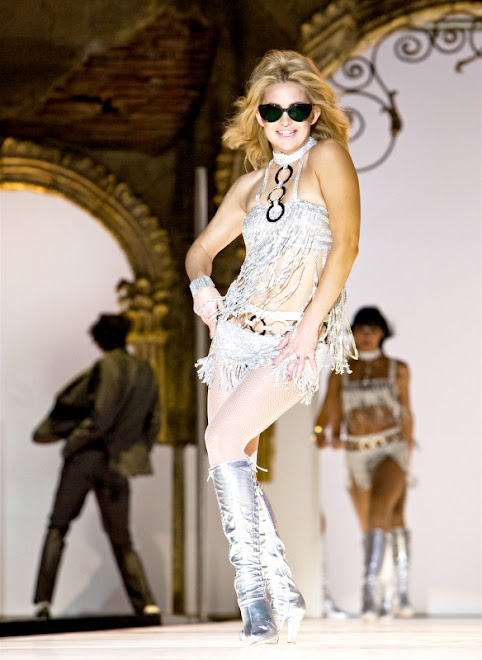each collage is either representative of something so important or is of a person that's influenced me or molded me in my seventeen years
Thank you all so much for what you've done for me, I would be a different person without you. I'm missing some people, but I'm doing my best to represent you or include you.
This isn't completely spontaneous, but in honor of my graduation.
Class of 2011!!!
Tuesday, May 10, 2011
Wednesday, April 6, 2011
In many cases it isn’t suitable to change environments when you’re accustomed to a certain pace the majority of your life. If you’re a down to earth Chicago boy, it might be a shock to transition to the glamorous jazz scene of 1920’s Long Island Sound. In The Great Gatsby by F. Scott Fitzgerald, Nick, a simple young man from Chicago, moves to West Egg Long Island Sound to work in New York City. As soon as he arrives, he is constantly haunted by the luring upbeat rhythms of jazz and enchanted by the sparkles and fast moving steps of upper class people enjoying the parties thrown by his mysterious neighbor Jay Gatsby. Externally, the novel can be seen as an insiders glimpse to American culture and society in the 20’s. But to Nick the novel is about a group of deeply disturbed socialites who each share an extensive list of flaws, despite their stature. Daisy is one of the main characters who is both involved with her husband Tom and former lover Gatsby. The author uses Daisy to personify societies attitude during that time period, the struggles and purpose of women, as well as reveals her personal flaws as a main character.
It is widely believed that one always wants what one doesn’t have. It is a saying that relates to modern times as well as the era the novel is set in. It is only one of many factors in modern day society, but if you were rich in the 1920s it was a saying that controlled your life. For the Buchanan’s it was the name of the game. Daisy and Tom went from fabulous estates in Chicago, to Long Island Sound, New York City, and eventually even to Europe. They are never happy with what they have, and spend fortunes buying estate after estate. Daisy is born into money and raised down South. She is properly educated, well mannered, dressed to the nines, and trained to be everything a wife is supposed to be. To the outside world she looks like a pretty well trained host with enthusiasm and class, but inside she is completely empty. No matter how many materialistic possessions she acquires she still lacks happiness, even when she tries to distract herself from the pain. She uses her affair with Gatsby to distract herself from the pain, but instead she negatively affects him and puts him at equal displeasure. Daisy symbolizes the main attitude and culture in America during that time. America in the 1920’s was all about a class system. If you were upper class, which was what everybody worked towards, you were never satisfied and concerned mostly with parties and reputation. But underneath all the fancy suits, cars, and houses one was never truly happy. For example, Gatsby tries to attain as much money as possible in order to win Daisy, but in the end of the novel he ends up alone and murdered. Wilson, a low class gas station owner, is merely content with the love he has for his wife Myrtle. Myrtle; however, is not content living as a low class citizen and tries to climb the social latter through her affair with Tom, and in the end she is also left alone and murdered. Daisy is American society in the 1920’s. She is poised, proper, pretty, educated, empty, and leads a meaningless sad life.
Every girl raised in upper class society was well educated because it was a trait that appealed to upper class boys, but not every well-educated girl mastered the art of common sense. In fact, Daisy is a rare exception. Daisy is admired in society because she seems to possess every quality a well-rounded girl should have, but she is empty and depressed because she has enough intelligence and common sense to see past false pretenses. Daisy knows that her husband Tom married into a label of a girl society thinks he should have. She is also aware of the fact that her parents sold her off like a prize horse, and she isn’t allowed to do anything about Tom’s affairs because she is merely a woman owned by a man. Her name, interests, and passions are irrelevant because her only purpose in life is to bear Tom’s children and play hostess to Tom’s friends. The audience is aware of Daisy’s depression from the beginning of the novel, but the author only reveals the reasons for her sadness slowly throughout the course of the plot. For example, when Nick first arrives at the Buchanan’s estate and Daisy and him are alone for the first time, Nick raises the subject of her daughter, “Well, she was less than an hour old and Tom was God knows where. I woke up out of the ether with an utterly abandoned feeling, and asked the nurse right away if it was a boy or a girl. She told me it was a girl, and so I turned my head away and wept. ‘All right,’ I said, ‘I’m glad it’s a girl. And I hope she’ll be a fool-that’s the best thing a girl can be in this world, a beautiful little fool.’” Daisy is intelligent, and her intelligence allows her to know better; therefore, she is empty and depressed. She understands the binding circumstances rich women are forced into, and she’d rather her daughter be stupid and not know better then sad and depressed. Daisy is also intelligent enough to understand that rich girls don’t marry poor boys, regardless of love and happiness. Mid novel, Jordan Baker meets Nick for tea and explains Gatsby and Daisy’s relationship, “She began to cry-she cried and cried. I rushed out and found her mother’s maid, and we locked the door and got her into a cold bath. She wouldn’t let go of the letter. She took it into the tub with her and squeezed it up into a wet ball, and only let me leave it in the soap-dish when she saw that it was coming to pieces like snow. But she didn’t say another word. We gave her spirits of ammonia and put ice on her forehead and hooked her back into her dress, and half an hour later, when we walked out of the room, the pearls were around her neck and the incident was over. Next day at five o’clock she married Tom Buchanan without so much as a shiver, and started off on a three months’ trip to the South Seas.” Daisy receives a letter from Gatsby the night before her wedding and is absolutely distraught over the subject because his written words remind her of true love. However, she goes on with her wedding because she is smart enough to realize that society won’t allow for a rich girl to marry a soldier.
In The Great Gatsby by F. Scott Fitzgerald, each character is flawed in one way or another. Daisy is the main heroine, and is flawed because she uses other people to lessen her pain. Daisy’s personal situation alludes to all of upper class society in the 1920’s, as well as a woman’s place. She is everything a rich girl should be, but because she knows her true purpose in life, she is sad and depressed. Upper class society in the 1920’s was about parties, reputation, big houses, fancy shirts, and unhappy people who were never satisfied.
It is widely believed that one always wants what one doesn’t have. It is a saying that relates to modern times as well as the era the novel is set in. It is only one of many factors in modern day society, but if you were rich in the 1920s it was a saying that controlled your life. For the Buchanan’s it was the name of the game. Daisy and Tom went from fabulous estates in Chicago, to Long Island Sound, New York City, and eventually even to Europe. They are never happy with what they have, and spend fortunes buying estate after estate. Daisy is born into money and raised down South. She is properly educated, well mannered, dressed to the nines, and trained to be everything a wife is supposed to be. To the outside world she looks like a pretty well trained host with enthusiasm and class, but inside she is completely empty. No matter how many materialistic possessions she acquires she still lacks happiness, even when she tries to distract herself from the pain. She uses her affair with Gatsby to distract herself from the pain, but instead she negatively affects him and puts him at equal displeasure. Daisy symbolizes the main attitude and culture in America during that time. America in the 1920’s was all about a class system. If you were upper class, which was what everybody worked towards, you were never satisfied and concerned mostly with parties and reputation. But underneath all the fancy suits, cars, and houses one was never truly happy. For example, Gatsby tries to attain as much money as possible in order to win Daisy, but in the end of the novel he ends up alone and murdered. Wilson, a low class gas station owner, is merely content with the love he has for his wife Myrtle. Myrtle; however, is not content living as a low class citizen and tries to climb the social latter through her affair with Tom, and in the end she is also left alone and murdered. Daisy is American society in the 1920’s. She is poised, proper, pretty, educated, empty, and leads a meaningless sad life.
Every girl raised in upper class society was well educated because it was a trait that appealed to upper class boys, but not every well-educated girl mastered the art of common sense. In fact, Daisy is a rare exception. Daisy is admired in society because she seems to possess every quality a well-rounded girl should have, but she is empty and depressed because she has enough intelligence and common sense to see past false pretenses. Daisy knows that her husband Tom married into a label of a girl society thinks he should have. She is also aware of the fact that her parents sold her off like a prize horse, and she isn’t allowed to do anything about Tom’s affairs because she is merely a woman owned by a man. Her name, interests, and passions are irrelevant because her only purpose in life is to bear Tom’s children and play hostess to Tom’s friends. The audience is aware of Daisy’s depression from the beginning of the novel, but the author only reveals the reasons for her sadness slowly throughout the course of the plot. For example, when Nick first arrives at the Buchanan’s estate and Daisy and him are alone for the first time, Nick raises the subject of her daughter, “Well, she was less than an hour old and Tom was God knows where. I woke up out of the ether with an utterly abandoned feeling, and asked the nurse right away if it was a boy or a girl. She told me it was a girl, and so I turned my head away and wept. ‘All right,’ I said, ‘I’m glad it’s a girl. And I hope she’ll be a fool-that’s the best thing a girl can be in this world, a beautiful little fool.’” Daisy is intelligent, and her intelligence allows her to know better; therefore, she is empty and depressed. She understands the binding circumstances rich women are forced into, and she’d rather her daughter be stupid and not know better then sad and depressed. Daisy is also intelligent enough to understand that rich girls don’t marry poor boys, regardless of love and happiness. Mid novel, Jordan Baker meets Nick for tea and explains Gatsby and Daisy’s relationship, “She began to cry-she cried and cried. I rushed out and found her mother’s maid, and we locked the door and got her into a cold bath. She wouldn’t let go of the letter. She took it into the tub with her and squeezed it up into a wet ball, and only let me leave it in the soap-dish when she saw that it was coming to pieces like snow. But she didn’t say another word. We gave her spirits of ammonia and put ice on her forehead and hooked her back into her dress, and half an hour later, when we walked out of the room, the pearls were around her neck and the incident was over. Next day at five o’clock she married Tom Buchanan without so much as a shiver, and started off on a three months’ trip to the South Seas.” Daisy receives a letter from Gatsby the night before her wedding and is absolutely distraught over the subject because his written words remind her of true love. However, she goes on with her wedding because she is smart enough to realize that society won’t allow for a rich girl to marry a soldier.
In The Great Gatsby by F. Scott Fitzgerald, each character is flawed in one way or another. Daisy is the main heroine, and is flawed because she uses other people to lessen her pain. Daisy’s personal situation alludes to all of upper class society in the 1920’s, as well as a woman’s place. She is everything a rich girl should be, but because she knows her true purpose in life, she is sad and depressed. Upper class society in the 1920’s was about parties, reputation, big houses, fancy shirts, and unhappy people who were never satisfied.
Sunday, March 20, 2011
The above two photos are poorly taken photos via mac photo booth. They show a ring I created out of washed up sea glass, found on the shores of Staten Island where my aunt Kim resides. She often walks the beach and collects litter, and in her hunt she sometimes finds beautiful pieces of sea glass. In its previous life the sea glass was most likely a beer bottle that drifted out to sea and was exhausted by the ocean, washed up, and turned into interesting soft colorful pieces of glass. I happened to find a piece that fit perfectly on my ring finger. I've had the piece for years, but just recently I decided to make something out of it. I cut up a piece of chain from an old necklace and hot glued it in an interesting pattern to the ring, I finished it off by molding a piece of light pink clay into a mini abstract rose, which I also hot glued to the glass.
Monday, January 24, 2011
I covered my studios floor with game boards, block fixtures, and varied toy people to create a performing art piece that goes far deeper then childhood memories. Because of a devastating event a decade ago, my childhood was robbed from me. I was forced to grow up much faster then my third grade classmates, and my mother and I switched roles. I took care of the adult, emotionally that is. Not only do I feel my childhood was robbed, I feel children in general are forced to grow up much faster then they truly want to. Societies pressures and the governments regulations, set many a year ago, force humans to take life in steps, and childhood is only half a step. We long to play manhunt on hot summer nights with only fireflies guiding our paths, we long to play with dolls, we long to use our barely developed brains in a match of battle ship, but we are only allotted a short amount of time to do so in peace. We are taught to grow up in a split second because that's what is seen as acceptable in society. But children are fragile and should be allowed to grow at the pace they want, and more importantly play games and dress up dolls for as long as they please. We wonder why so many adults are mad, depressed, delirious, and down right crazy, but it's because so many of us are forced to live at a pace SOMEONE ELSE set. In my piece I show different game boards as the landscape and basis, and a built block pentagon in the middle of it all, after all, behind innocence and games is societies pressures and the governments control. Lego people and small wooden animals are set in compromising sexual positions, showing we are subconsciously forced to do things before we're ready. I also chose to show the wooden animals using technology, little plastic phones from the game Scene It, to show the irony in forcing people to take life by steps, much like it's ironic and wrong for an animal to be chatting on a cell phone. I am naked in my piece with a dress placed on top of me, a dress I wore when I was six years old to my Aunt Kim's christmas party. I lay on the board games holding a picture of me when I was six, wearing the exact same dress sitting in front of the christmas tree with a picturesque fire blazing. My wrist is covered in red paint, referencing death, and symbolizing the death of childhood. I hold a knife.
Sunday, November 14, 2010
She laid her head on the cold gym mat. A towel? That’s all we get for protection, for warmth? Exhaustion was colored in the black circles under her eyes. That game we played last night was ridiculous, but she seems to think it was worth the exhaustion. It’s never a good idea to put your hand between the snapping gates of Jake’s snout, but her father laughed from the irritation the dog felt, which only pushed her. She gets naptime, but my kind never catches a break. Always voluminous and forever tangled, if only she’d buy more of that leave in conditioner! Mrs. D smeared cheap costume crayon on her lips and teeth. She cleared her throat and announced the children would have twenty minutes of naptime today. Holly had sarcasm plastered from cheek to cheek, “Wow Mrs. D, you’re a saint” sort of thing. Mrs. D noticed, “If you don’t wipe that smirk off your face it’ll be a ten minute snooze,” like anyone cared. God she’s tacky, and her hair looks like it’s made of bricks and plaster! How does she manage to walk indoors? Does her hair block her from entering classrooms? The smell of cheap 80’s hairspray suffocated the children as they tried to sleep, and the sound of chunky jewels smacking against the cherry oak went off like a bomb. How can these five year olds bear it? “Nap times over! Snap out of it!” I guess they don’t have time to even try bearing it, Mrs. D wouldn’t allow that. Holly arose obnoxiously, and quite theatrically winning the giggles of a few classmates. Mrs. D wasn’t giggling, her eyes, disguised by layers of blue eye shadow, gleamed with evil intention. “Okay smart mouth, come up to the board and do what I say,” Holly dragged her feet and put on a pout, this could only be bad. Bad is the only thing Mrs. D knows, she lives and breathes bad. “Write six plus seven on the board…with the answer,” Holly can do math, but after excess mental abuse through Mrs. D it’s become a fear. With a shaky hand, the slender chalk embraced the board as Holly’s classmates pierced holes in her back. All they could do was tease, and through their teasing they judged. A five year olds brain is a sponge seeping with information mimicked from television and movies. Parents these days are too selfish to take their kid to the park, so instead they squat them mindlessly in front of a TV. Whatever happened to feeding the ducks? It works for both of us. Children need to realize the sunlight is good for their hairs physical appearance, except if you’re blonde. Holly began to cry, fat tears rolled down her cheeks even as she bit her lip in protest. She looked to Mrs. D, even as a five year old she knew to seek help from adults, but Mrs. D grinned as she smacked a wad of gum between her cheap lips and scarlet stained teeth. Mrs. D barely gave Holly a chance to suck back tears and think before she blurted, “What are you in LaLa Land?” With those simple words, disguised in an ugly Brooklyn accent, Holly fled from the room as laughter chased from behind. She ran passed every jail cell of a classroom, and right out the front door into the sunny Manhattan day. She passed the little corner deli, where the owner always charged a dollar less to all her purchases. She stopped for just a moment to gaze at the mouth drooling pickles floating in the jar, Holly picked up her craving for pickles from her dad. They both loved to drink pickle juice out of the jar with straws; Holly’s mom was always repulsed by it. The disapproval her mother expressed from the pickles reminded her of her judgmental classmates so she continued down the solemn street. It was a sunny Manhattan day in October, and all though such a thing is rare, Holly couldn’t enjoy it. The sun reflecting in the street turned into black clouds enveloping every smile and every vibrant tree plot lining the block. At least for Holly, but the sunshine felt warm and comforting to me. Holly walked in a trance all the way home, her mom was surprised to see her five year old coming home an hour early and alone. After surprise sunk in, panic took over as Holly’s mother grabbed her and shook her like a rag doll. Holly told the entire story, and mentioned this was one of many incidents involving Mrs. D and her self-esteem. Holly’s mom called her small Lutheran school and reported Mrs. D. The next day at school Holly volunteered to go to the board, where she solved math problems with confidence and ease, and a little flash of the tongue to spite Mrs. D.
Thursday, October 21, 2010
‘For the use of such ghosts as choose to inhabit it?’ I observed. ‘No, Mr. Lockwood,’ said Nelly, shaking her head. ‘I believe the dead are at peace: but it is not right to speak of them with levity.’ At that moment the garden gate swung to; the ramblers were returning. ‘They are afraid of nothing,’ I grumbled, watching their approach through the window. ‘Together, they would brave Satan, and all his legions.’ As they stepped on to the door-stones, and halted to take a last look at the moon-or, more correctly, at each other by her light-I felt irresistibly impelled to escape them again; and, pressing a remembrance into the hand of Mrs. Dean, and disregarding her expostulations at my rudeness, I vanished through the kitchen as they opened the house-door; and so should have confirmed Joseph in his opinion of his fellow-servant’s gay indiscretions, had he not fortunately recognized me for a respectable character by the sweet ring of a sovereign at his feet. My walk home was lengthened by a diversion in the direction of the kirks. When beneath its walls, I perceived decay had made progress, even in seven months: many a window showed black gaps deprived of glass; and slates jutted off, here and there, beyond the right line of the roof, to be gradually worked off in coming autumn storms. I sought, and soon discovered, the three headstones on the slope next the moor: the middle one grey, and a half buried in heath; Edgar Linton’s only harmonized by the turf and moss creeping up its foot; Heathcliff’s still bare. I lingered round them, under that benign sky: watched the moths fluttering among the heath and harebells, listened to the soft wind breathing through the grass, and wondered how any one could ever imagine unquiet slumbers for the sleepers in that quiet earth.”
The afterlife doesn’t always have religious affiliations. Ones own personal spiritual connection doesn’t change depending on whether they are Christian or Buddhist. The afterlife and what happens to an individual when they die is completely unclear, but some might say that a spiritual connection is more closely related to actions rather then a belief system. The last passage in the novel Wuthering Heights by Emily Bronte is a microcosm in respect to the entire novel. But what’s displayed in that one passage emphasizes a major theme throughout the storyline, and that theme is the overpowering effect the dead have on the living. The power the dead have on the living is not only a spiritual haunting, but they also have a physical effect on living characters. The main focus of the passage emphasizes how the dead can exert a powerful effect on a character that is still alive; the dead are a catalyst for change, and haunt characters thoughts and feelings.
Although it’s unclear what the after life is, it’s clear that the effect the dead have in memory, and in an unearthly presence is empowering and can change the personalities of the living. Nelly Dean was deeply involved in the lives of the characters that eventually die. Nelly was so involved in the lives of other people that she became distant from herself, but she maintains a calm and collected personality. But when all of the main characters are dead, and young Catherine and Hareton move on in their lives, Nelly is finally left to take care of herself rather then caring for others. But Nelly spent so much time caring for others that she subconsciously discovers she’s distant from herself, and this is apparent in her words. Lockwood comes to the moors for an update and in conversation Nelly says, “’No, Mr. Lockwood,’ said Nelly, shaking her head. ‘I believe the dead are at peace: but it is not right to speak of them with levity.’” In context Nelly is snippy with Lockwood, where before she was open and enthusiastic when telling her tales. Nelly dreads the idea of the dead continuing to haunt the moors and it’s apparent when she tells Lockwood to be respectful, hoping the chances of keeping them away will advance. Heathcliff often confessed to Nelly that Catherine haunts him, but she never believed in such foolishness. But as soon as Nelly is left to deal with herself her own personal ghosts come out to haunt her, and the dead trigger these burdens. These ghosts represent the traumatizing memories the dead characters imbedded in her mind when they were alive, and the reminder that she doesn’t know who she truly is because she never had time for herself. When the characters were alive Nelly was verbal and open, and never believed the after life could effect her. But when the characters are dead Nelly is left alone and therefore her personality transforms, as shown in the last passage.
Lockwood thrives through the simple words that flow out of Nelly’s mouth. He is an outsider in the novel, and never knew two of the three dead characters. The third dead character, Heathcliff, he only met three times. Yet he is still consumed and obsessed with Nelly’s recollection of their lives. Lockwood eventually leaves the moors because he fears the isolation, and after only meeting Heathcliff three times, he fears he may become like the conniving character if he stays. During his time away, Heathcliff dies, and in some ways Lockwood is so consumed by the story that me might have sensed Heathcliff’s death, causing his return. At first glance this return can be seen as an act of curiosity. But deeper down he has become so obsessed with the story that he has let the dead control his mind and actions. When talking to Nelly Dean Lockwood blurts, “For the use of such ghosts as choose to inhabit it?” His thoughts are so consumed by the dead that he almost hopes they will haunt the moors, that way he may get a chance to experience them from a perspective besides a story. Lockwood is well bred and wealthy, yet he exerts this rude and disrespectful question in front of Nelly without hesitation. His obsession starts to lead him from his routinely ways, and his rude statement even reflects the likes of Heathcliff, someone he tried to escape once before. The dead have such a large control over his thoughts and feelings that his own personality starts to alter in reflection of the dead Heathcliff. His emotional attachment to the story is so strong that it takes over his life, and leads him to the cemetery where Catherine, Edgar, and Heathcliff lie. Lockwood observes, “…and wondered how any one could ever imagine unquiet slumbers for the sleepers in that quiet earth.” The control the dead have on Lockwood’s emotions and thoughts come to peace in this scene, much like nature allows the dead to come to peace in the afterlife. When Lockwood physically sees that the dead have rest all conflict and come to peace with nature, it allows his own mind to accept reality and make peace with nature. He is finally able to part with his own ghosts.
What happens to people when they die was unclear in the time Wuthering Heights, and remains unclear in present day. Memories as well as a super natural presence affect the lives of the living characters in the novel; the dead characters have the ability to alter personalities and control mind and emotion. Although the dead has the ability to control and alter the lives of the living, the living has the ability to stop the dead. Both the abilities of the living and the abilities of the dead are displayed throughout the novel, and both are displayed in the last passage. It’s fact that Catherine, Edgar, and Heathcliff have the effect to alter the personalities and emotions of the living characters, but it’s also fact that the living characters are able to overcome their power by finding peace with nature. Ironically, the peace the living characters find in nature is a gift from the dead. The dead characters are able to find peace with nature in the afterlife, and that realization allows the living to find peace with their ghosts.
>>essay I wrote focusing on the thematic motif of death, something that is natural in life and supernatural throughout eternity.
The afterlife doesn’t always have religious affiliations. Ones own personal spiritual connection doesn’t change depending on whether they are Christian or Buddhist. The afterlife and what happens to an individual when they die is completely unclear, but some might say that a spiritual connection is more closely related to actions rather then a belief system. The last passage in the novel Wuthering Heights by Emily Bronte is a microcosm in respect to the entire novel. But what’s displayed in that one passage emphasizes a major theme throughout the storyline, and that theme is the overpowering effect the dead have on the living. The power the dead have on the living is not only a spiritual haunting, but they also have a physical effect on living characters. The main focus of the passage emphasizes how the dead can exert a powerful effect on a character that is still alive; the dead are a catalyst for change, and haunt characters thoughts and feelings.
Although it’s unclear what the after life is, it’s clear that the effect the dead have in memory, and in an unearthly presence is empowering and can change the personalities of the living. Nelly Dean was deeply involved in the lives of the characters that eventually die. Nelly was so involved in the lives of other people that she became distant from herself, but she maintains a calm and collected personality. But when all of the main characters are dead, and young Catherine and Hareton move on in their lives, Nelly is finally left to take care of herself rather then caring for others. But Nelly spent so much time caring for others that she subconsciously discovers she’s distant from herself, and this is apparent in her words. Lockwood comes to the moors for an update and in conversation Nelly says, “’No, Mr. Lockwood,’ said Nelly, shaking her head. ‘I believe the dead are at peace: but it is not right to speak of them with levity.’” In context Nelly is snippy with Lockwood, where before she was open and enthusiastic when telling her tales. Nelly dreads the idea of the dead continuing to haunt the moors and it’s apparent when she tells Lockwood to be respectful, hoping the chances of keeping them away will advance. Heathcliff often confessed to Nelly that Catherine haunts him, but she never believed in such foolishness. But as soon as Nelly is left to deal with herself her own personal ghosts come out to haunt her, and the dead trigger these burdens. These ghosts represent the traumatizing memories the dead characters imbedded in her mind when they were alive, and the reminder that she doesn’t know who she truly is because she never had time for herself. When the characters were alive Nelly was verbal and open, and never believed the after life could effect her. But when the characters are dead Nelly is left alone and therefore her personality transforms, as shown in the last passage.
Lockwood thrives through the simple words that flow out of Nelly’s mouth. He is an outsider in the novel, and never knew two of the three dead characters. The third dead character, Heathcliff, he only met three times. Yet he is still consumed and obsessed with Nelly’s recollection of their lives. Lockwood eventually leaves the moors because he fears the isolation, and after only meeting Heathcliff three times, he fears he may become like the conniving character if he stays. During his time away, Heathcliff dies, and in some ways Lockwood is so consumed by the story that me might have sensed Heathcliff’s death, causing his return. At first glance this return can be seen as an act of curiosity. But deeper down he has become so obsessed with the story that he has let the dead control his mind and actions. When talking to Nelly Dean Lockwood blurts, “For the use of such ghosts as choose to inhabit it?” His thoughts are so consumed by the dead that he almost hopes they will haunt the moors, that way he may get a chance to experience them from a perspective besides a story. Lockwood is well bred and wealthy, yet he exerts this rude and disrespectful question in front of Nelly without hesitation. His obsession starts to lead him from his routinely ways, and his rude statement even reflects the likes of Heathcliff, someone he tried to escape once before. The dead have such a large control over his thoughts and feelings that his own personality starts to alter in reflection of the dead Heathcliff. His emotional attachment to the story is so strong that it takes over his life, and leads him to the cemetery where Catherine, Edgar, and Heathcliff lie. Lockwood observes, “…and wondered how any one could ever imagine unquiet slumbers for the sleepers in that quiet earth.” The control the dead have on Lockwood’s emotions and thoughts come to peace in this scene, much like nature allows the dead to come to peace in the afterlife. When Lockwood physically sees that the dead have rest all conflict and come to peace with nature, it allows his own mind to accept reality and make peace with nature. He is finally able to part with his own ghosts.
What happens to people when they die was unclear in the time Wuthering Heights, and remains unclear in present day. Memories as well as a super natural presence affect the lives of the living characters in the novel; the dead characters have the ability to alter personalities and control mind and emotion. Although the dead has the ability to control and alter the lives of the living, the living has the ability to stop the dead. Both the abilities of the living and the abilities of the dead are displayed throughout the novel, and both are displayed in the last passage. It’s fact that Catherine, Edgar, and Heathcliff have the effect to alter the personalities and emotions of the living characters, but it’s also fact that the living characters are able to overcome their power by finding peace with nature. Ironically, the peace the living characters find in nature is a gift from the dead. The dead characters are able to find peace with nature in the afterlife, and that realization allows the living to find peace with their ghosts.
>>essay I wrote focusing on the thematic motif of death, something that is natural in life and supernatural throughout eternity.
Sunday, September 12, 2010
“For times they are a changin’” Bob Dylan saw the world through futuristic eyes. He saw the world with accepted civil rights, and world conflictions being solved with conversation and music rather then wars. He saw all people treated and accepted as total equals by their morals rather then their race or cultural backgrounds. He was a rebellious peacemaker, he caused a riot at the Newport Folk Festival in 1965 when he went on stage and played his normal folk music in electric heavy medal guitar. His radical ways of making points are all for the cause of getting societies attention to issues like civil rights and anti-war, the heavy slashes of the notes flowing from the guitar were ways of expressing war, and illustrating how war invades on peaceful communities, much like the heavy medal he played interrupted the peace of the folk festival. Bob Dylan was born Robert Albert Zimmerman and is foremost an American singer, songwriter, and musician. He composes all of his music down to the very technical threads, and because of this his music is very raw, but still has a point and is musically phenomenal. He was the Holden Caulfield of 1960s America and was the head spokesperson in opposing societies imperfections; he was a form of an activist most would say. Dylan expressed his activist point of view through what he knew best, his music. His songs like “Blowin’ In The Wind” and “Times They Are a-Changin’” express societies ignorance towards racial segregation and the violence in war and the ironic component in America of fighting a war for peace. His lyrics were philosophical, political, and enlightening to every listener no matter what the interpretation. He was multitalented in the fact that he could sing and compose folk, blues, rock and roll, gospel, and country music. He even contributed to jazz, swing, and Irish folk music. He toured through every musical endeavor he went about, and his most famous tour was in the 1980s known as “The Never Ending Tour”. His work has been so significant to society that he has won Grammy’s, Academy Awards, Golden Globes, and is in the Rock and Roll Hall of Fame. Amazingly, in 2008 years after the significant part of his career had passed he received a Pulitzer Prize for his musical work, and his work as an activist through music. Dylan is significant to U.S. history because all though he wasn’t a major event or a president, he used his musical talents and his good morals to stand up for what was right. He pushed until Civil Rights were accepted, and to this day still protests war and other imperfection in U.S. society. The most phenomenal part is he did this through music, a network that intrigues millions of people and creates fan addicts, and addicts who fought for the same causes he did.
Subscribe to:
Posts (Atom)




















































































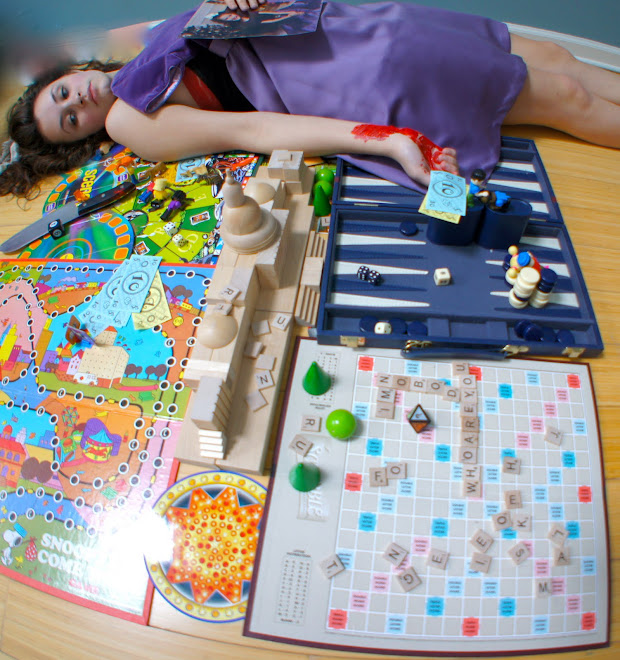









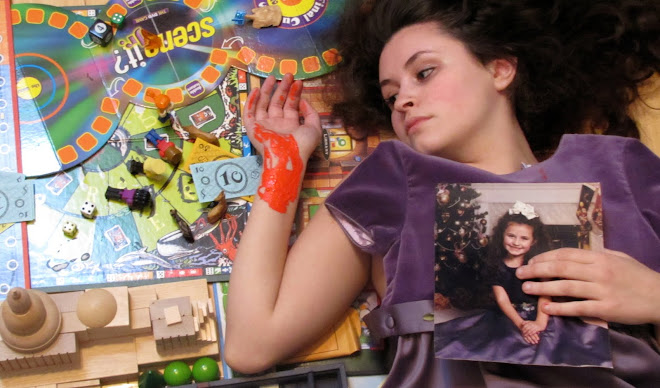













































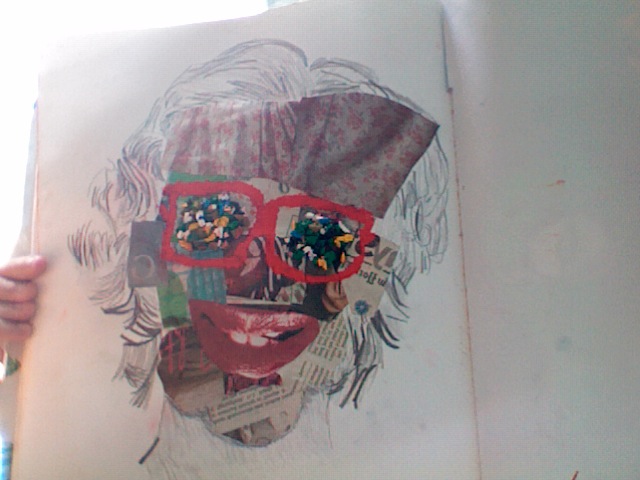
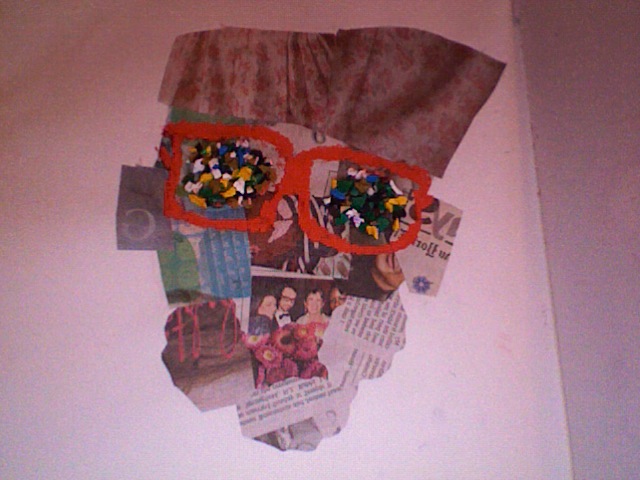

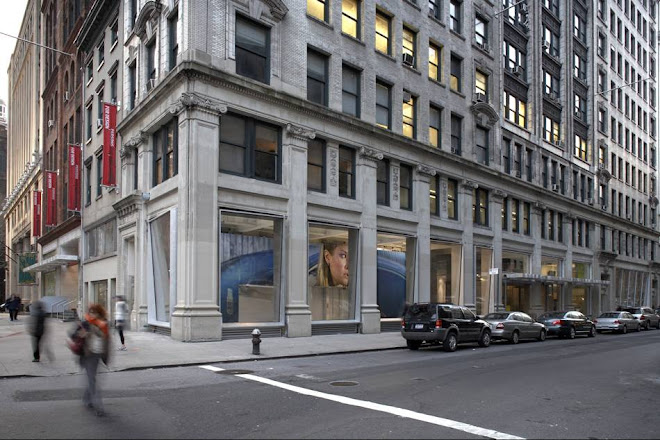.jpg)





.jpg)






































